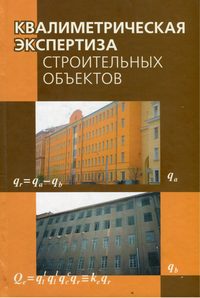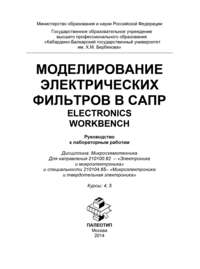
Полная версия
75 лучших рассказов / 75 Best Short Stories
The dark moustache of Mr. Sandeman shot upwards, revealing a narrow line of yellow teeth. He uttered a sound that was a mingling of contempt and derision; then he drawled out: ‘Really? How wonderful – to have such comprehensive knowledge!’
He laughed, and his small eyes fixed his rival. Lowes-Parlby flushed a deep red. He gulped down half a glass of port and muttered just above a whisper: ‘Damned impudence!’ Then, in the rudest manner he could display, he turned his back deliberately on Sandeman and walked out of the room.
* * * * *
In the company of Adela he tried to forget the little contretemps. The whole thing was so absurd – so utterly undignified. As thoughhe didn’t know! It was the little accumulation of pin-pricks all arising out of that one argument. The result had suddenly goaded him to – well, being rude, to say the least of it. It wasn’t that Sandeman mattered. To the devil with Sandeman! But what would his future father-in-law think? He had never before given way to any show of ill-temper before him. He forced himself into a mood of rather fatuous jocularity. Adela was at her best in those moods. They would have lots of fun together in the days to come. Her almost pretty, not too clever face was dimpled with kittenish glee. Life was a tremendous rag to her. They were expecting Toccata, the famous opera-singer. She had been engaged at a very high fee to come on from Covent Garden. Mr. Sandeman was very fond of music. Adela was laughing, and discussing which was the most honourable position for the great Sandeman to occupy. There came to Lowes-Parlby a sudden abrupt misgiving. What sort of wife would this be to him when they were not just fooling? He immediately dismissed the curious, furtive little stab of doubt. The splendid proportions of the room calmed his senses. A huge bowl of dark red roses quickened his perceptions. His career… The door opened. But it was not La Toccata. It was one of the household flunkies. Lowes-Parlby turned again to his inamorata[32].
‘Excuse me, sir. His lordship says will you kindly go and see him in the library?’
Lowes-Parlby regarded the messenger, and his heart beat quickly. An uncontrollable presage of evil racked his nerve-centres. Something had gone wrong; and yet the whole thing was so absurd, trivial. In a crisis – well, he could always apologize. He smiled confidently at Adela, and said:
‘Why, of course; with pleasure. Please excuse me, dear.’ He followed the impressive servant out of the room. His foot had barely touched the carpet of the library when he realized that his worst apprehensions were to be plumbed to the depths. For a moment he thought Lord Vermeer was alone, then he observed old Stephen Garrit, lying in an easy-chair in the corner like a piece of crumpled parchment. Lord Vermeer did not beat about the bush. When the door was closed, he bawled out, savagely:
‘What the devil have you done?’
‘Excuse me, sir. I’m afraid I don’t understand. Is it Sandeman—?’
‘Sandeman has gone.’
‘Oh, I’m sorry.’
‘Sorry! By God, I should think you might be sorry! You insulted him. My prospective son-in-law insulted him in my own house!’
‘I’m awfully sorry. I didn’t realize—’
‘Realize! Sit down, and don’t assume for one moment that you continue to be my prospective son-in-law. Your insult was a most intolerable piece of effrontery, not only to him, but to me.’
‘But I—’
‘Listen to me. Do you know that the government were on the verge of concluding a most far-reaching treaty with that man? Do you know that the position was just touch-and-go? The concessions we were prepared to make would have cost the State thirty million pounds, and it would have been cheap. Do you hear that? It would have been cheap! Bakkan is one of the most vulnerable outposts of the Empire. It is a terrible danger-zone. If certain powers can usurp our authority – and, mark you, the whole blamed place is already riddled with this new pernicious doctrine – you know what I mean – before we know where we are the whole East will be in a blaze. India! My God! This contract we were negotiating would have countered this outward thrust. And you, you blockhead, you come here and insult the man upon whose word the whole thing depends.’
‘I really can’t see, sir, how I should know all this.’
‘You can’t see it! But, you fool, you seemed to go out of your way. You insulted him about the merest quibble – in my house!’
‘He said he knew where Wych Street was. He was quite wrong. Icorrected him.’
‘Wych Street! Wych Street be damned! If he said Wych Street was in the moon, you should have agreed with him. There was no call to act in the way you did. And you – you think of going into politics!’
The somewhat cynical inference of this remark went unnoticed. Lowes-Parlby was too unnerved. He mumbled:
‘I’m very sorry.’
‘I don’t want your sorrow. I want something more practical.’
‘What’s that, sir?’
‘You will drive straight to Mr. Sandeman’s, find him, and apologize. Tell him you find that he was right about Wych Street after all. If you can’t find him to-night, you must find him to-morrow morning. I give you till midday to-morrow. If by that time you have not offered a handsome apology to Mr. Sandeman, you do not enter this house again, you do not see my daughter again. Moreover, all the power I possess will be devoted to hounding you out of that profession you have dishonoured. Now you can go.’
Dazed and shaken, Lowes-Parlby drove back to his flat at Knightsbridge[33]. Before acting he must have time to think. Lord Vermeer had given him till to-morrow midday. Any apologizing that was done should be done after a night’s reflection. The fundamental purposes of his being were to be tested. He knew that. He was at a great crossing. Some deep instinct within him was grossly outraged. Is it that a point comes when success demands that a man shall sell his soul? It was all so absurdly trivial – a mere argument about the position of a street that had ceased to exist. As Lord Vermeer said, what did it matter about Wych Street?
Of course he should apologize. It would hurt horribly to do so, but would a man sacrifice everything on account of some footling argument about a street?
In his own rooms, Lowes-Parlby put on a dressing-gown, and, lighting a pipe, he sat before the fire. He would have given anything for companionship at such a moment – the right companionship. How lovely it would be to have – a woman, just the right woman, to talk this all over with; some one who understood and sympathized. A sudden vision came to him of Adela’s face grinning about the prospective visit of La Toccata, and again the low voice of misgiving whispered in his ears. Would Adela be – just the right woman? In very truth, did he really love Adela? Or was it all – a rag? Was life a rag – a game played by lawyers, politicians, and people?
The fire burned low, but still he continued to sit thinking, his mind principally occupied with the dazzling visions of the future. It was past midnight when he suddenly muttered a low ‘Damn!’ and walked to the bureau. He took up a pen and wrote:
‘Dear Mr. Sandeman, –
I must apologize for acting so rudely to you last night. It was quite unpardonable of me, especially as I since find, on going into the matter, that you were quite right about the position of Wych Street. I can’t think how I made the mistake. Please forgive me.
‘Yours cordially,
‘FRANCIS LOWES-PARLBY.’
Having written this, he sighed and went to bed. One might have imagined at that point that the matter was finished. But there are certain little greedy demons of conscience that require a lot of stilling, and they kept Lowes-Parlby awake more than half the night. He kept on repeating to himself, ‘It’s all positively absurd!’ But the little greedy demons pranced around the bed, and they began to group things into two definite issues. On the one side, the great appearances; on the other, something at the back of it all, something deep, fundamental, something that could only be expressed by one word – truth. If he hadreally loved Adela – if he weren’t so absolutely certain that Sandeman was wrong and he was right – why should he have to say that Wych Street was where it wasn’t? ‘Isn’t there, after all,’ said one of the little demons, ‘something which makes for greater happiness than success? Confess this, and we’ll let you sleep.’
Perhaps that is one of the most potent weapons the little demons possess. However full our lives may be, we ever long for moments of tranquillity. And conscience holds before our eyes some mirror of an ultimate tranquillity. Lowes-Parlby was certainly not himself. The gay, debonair, and brilliant egoist was tortured, and tortured almost beyond control; and it had all apparently risen through the ridiculous discussion about a street. At a quarter past three in the morning he arose from his bed with a groan, and, going into the other room, he tore the letter to Mr. Sandeman to pieces.
* * * * *
Three weeks later old Stephen Garrit was lunching with the Lord Chief Justice. They were old friends, and they never found it incumbent to be very conversational. The lunch was an excellent, but frugal, meal. They both ate slowly and thoughtfully, and their drink was water. It was not till they reached the dessert stage that his lordship indulged in any very informative comment, and then he recounted to Stephen the details of a recent case in which he considered that the presiding judge had, by an unprecedented paralogy, misinterpreted the law of evidence. Stephen listened with absorbed attention. He took two cob-nuts from the silver dish, and turned them over meditatively, without cracking them. When his lordship had completely stated his opinion and peeled a pear, Stephen mumbled:
‘I have been impressed, very impressed indeed. Even in my own field of limited observation – the opinion of an outsider, you may say – so often it happens – the trouble caused by an affirmation without sufficiently established data. I have seen lives lost, ruin brought about, endless suffering. Only last week, a young man – a brilliant career – almost shattered. People make statements without—’
He put the nuts back on the dish, and then, in an apparently irrelevant manner, he said abruptly:
‘Do you remember Wych Street, my lord?’
The Lord Chief justice grunted.
‘Wych Street! Of course I do.’
‘Where would you say it was, my lord?’
‘Why, here, of course.’
His lordship took a pencil from his pocket and sketched a plan on the tablecloth.
‘It used to run from there to here.’
Stephen adjusted his glasses and carefully examined the plan. He took a long time to do this, and when he had finished his hand instinctively went towards a breast pocket where he kept a note-book with little squared pages. Then he stopped and sighed. After all, why argue with the law? The law was like that – an excellent thing, not infallible, of course (even the plan of the Lord Chief justice was a quarter of a mile out), but still an excellent, a wonderful thing. He examined the bony knuckles of his hands and yawned slightly.
‘Do you remember it?’ said the Lord Chief justice.
Stephen nodded sagely, and his voice seemed to come from a long way off:
‘Yes, I remember it, my lord. It was a melancholy little street.’
The Water Ghost of Harrowby Hall (John Kendrick Bangs)
The trouble with Harrowby Hall was that it was haunted, and, what was worse, the ghost did not content itself with merely appearing at the bedside of the afflicted person who saw it, but persisted in remaining there for one mortal hour before it would disappear.
It never appeared except on Christmas Eve, and then as the clock was striking twelve, in which respect alone was it lacking in that originality which in these days is a sine qua non[34] of success in spectral life. The owners of Harrowby Hall had done their utmost to rid themselves of the damp and dewy lady who rose up out of the best bedroom floor at midnight, but without avail. They had tried stopping the clock, so that the ghost would not know when it was midnight; but she made her appearance just the same, with that fearful miasmatic personality of hers, and there she would stand until everything about her was thoroughly saturated.
Then the owners of Harrowby Hall caulked up every crack in the floor with the very best quality of hemp, and over this was placed layers of tar and canvas; the walls were made water-proof, and the doors and windows likewise, the proprietors having conceived the notion that the unexorcised lady would find it difficult to leak into the room after these precautions had been taken; but even this did not suffice. The following Christmas Eve she appeared as promptly as before, and frightened the occupant of the room quite out of his senses by sitting down alongside of him and gazing with her cavernous blue eyes into his; and he noticed, too, that in her long, aqueously bony fingers bits of dripping sea-weed were entwined, the ends hanging down, and these ends she drew across his forehead until he became like one insane. And then he swooned away, and was found unconscious in his bed the next morning by his host, simply saturated with sea-water and fright, from the combined effects of which he never recovered, dying four years later of pneumonia and nervous prostration at the age of seventy-eight.
The next year the master of Harrowby Hall decided not to have the best spare bedroom opened at all, thinking that perhaps the ghost’s thirst for making herself disagreeable would be satisfied by haunting the furniture, but the plan was as unavailing as the many that had preceded it.
The ghost appeared as usual in the room – that is, it was supposed she did, for the hangings were dripping wet the next morning, and in the parlor below the haunted room a great damp spot appeared on the ceiling. Finding no one there, she immediately set out to learn the reason why, and she chose none other to haunt than the owner of the Harrowby himself. She found him in his own cosy room drinking whiskey – whiskey undiluted – and felicitating himself upon having foiled her ghostship, when all of a sudden the curl went out of his hair, his whiskey bottle filled and overflowed, and he was himself in a condition similar to that of a man who has fallen into a water-butt. When he recovered from the shock, which was a painful one, he saw before him the lady of the cavernous eyes and sea-weed fingers. The sight was so unexpected and so terrifying that he fainted, but immediately came to, because of the vast amount of water in his hair, which, trickling down over his face, restored his consciousness.
Now it so happened that the master of Harrowby was a brave man, and while he was not particularly fond of interviewing ghosts, especially such quenching ghosts as the one before him, he was not to be daunted by an apparition. He had paid the lady the compliment of fainting from the effects of his first surprise, and now that he had come to he intended to find out a few things he felt he had a right to know. He would have liked to put on a dry suit of clothes first, but the apparition declined to leave him for an instant until her hour was up, and he was forced to deny himself that pleasure. Every time he would move she would follow him, with the result that everything she came in contact with got a ducking. In an effort to warm himself up he approached the fire, an unfortunate move as it turned out, because it brought the ghost directly over the fire, which immediately was extinguished. The whiskey became utterly valueless as a comforter to his chilled system, because it was by this time diluted to a proportion of ninety per cent of water. The only thing he could do to ward off the evil effects of his encounter he did, and that was to swallow ten two-grain quinine pills, which he managed to put into his mouth before the ghost had time to interfere. Having done this, he turned with some asperity to the ghost, and said:
‘Far be it from me to be impolite to a woman, madam, but I’m hanged if it wouldn’t please me better if you’d stop these infernal visits of yours to this house. Go sit out on the lake, if you like that sort of thing; soak the water-butt, if you wish; but do not, I implore you, come into a gentleman’s house and saturate him and his possessions in this way. It is damned disagreeable.’
‘Henry Hartwick Oglethorpe,’ said the ghost, in a gurgling voice, ‘you don’t know what you are talking about.’
‘Madam,’ returned the unhappy householder, ‘I wish that remark were strictly truthful. I was talking about you. It would be shillings and pence – nay, pounds, in my pocket, madam, if I did not know you.’
‘That is a bit of specious nonsense,’ returned the ghost, throwing a quart of indignation into the face of the master of Harrowby. ‘It may rank high as repartee, but as a comment upon my statement that you do not know what you are talking about, it savors of irrelevant impertinence. You do not know that I am compelled to haunt this place year after year by inexorable fate. It is no pleasure to me to enter this house, and ruin and mildew everything I touch. I never aspired to be a shower-bath, but it is my doom. Do you know who I am?’
‘No, I don’t,’ returned the master of Harrowby. ‘I should say you were the Lady of the Lake, or Little Sallie Waters.’
‘You are a witty man for your years,’ said the ghost.
‘Well, my humor is drier than yours ever will be,’ returned the master.
‘No doubt. I’m never dry. I am the Water Ghost of Harrowby Hall, and dryness is a quality entirely beyond my wildest hope. I have been the incumbent of this highly unpleasant office for two hundred years to-night.’
‘How the deuce did you ever come to get elected?’ asked the master.
‘Through a suicide,’ replied the spectre. ‘I am the ghost of that fair maiden whose picture hangs over the mantel-piece in the drawing-room. I should have been your great-great-great-great-great-aunt if I had lived, Henry Hartwick Oglethorpe, for I was the own sister of your great-great-great-great-grandfather.’
‘But what induced you to get this house into such a predicament?’
‘I was not to blame, sir,’ returned the lady. ‘It was my father’s fault. He it was who built Harrowby Hall, and the haunted chamber was to have been mine. My father had it furnished in pink and yellow, knowing well that blue and gray formed the only combination of color I could tolerate. He did it merely to spite me, and, with what I deem a proper spirit, I declined to live in the room; whereupon my father said I could live there or on the lawn, he didn’t care which. That night I ran from the house and jumped over the cliff into the sea.’
‘That was rash,’ said the master of Harrowby.
‘So I’ve heard,’ returned the ghost. ‘If I had known what the consequences were to be I should not have jumped; but I really never realized what I was doing until after I was drowned. I had been drowned a week when a sea-nymph came to me and informed me that I was to be one of her followers forever afterwards, adding that it should be my doom to haunt Harrowby Hall for one hour every Christmas Eve throughout the rest of eternity. I was to haunt that room on such Christmas Eves as I found it inhabited; and if it should turn out not to be inhabited, I was and am to spend the allotted hour with the head of the house.’
‘I’ll sell the place.’
‘That you cannot do, for it is also required of me that I shall appear as the deeds are to be delivered to any purchaser, and divulge to him the awful secret of the house.’
‘Do you mean to tell me that on every Christmas Eve that I don’t happen to have somebody in that guest-chamber, you are going to haunt me wherever I may be, ruining my whiskey, taking all the curl out of my hair, extinguishing my fire, and soaking me through to the skin?’ demanded the master.
‘You have stated the case, Oglethorpe. And what is more,’ said the water ghost, ‘it doesn’t make the slightest difference where you are, if I find that room empty, wherever you may be I shall douse you with my spectral pres—’
Here the clock struck one, and immediately the apparition faded away. It was perhaps more of a trickle than a fade, but as a disappearance it was complete.
‘By St. George and his Dragon![35]’ ejaculated the master of Harrowby, wringing his hands. ‘It is guineas to hot-cross buns that next Christmas there’s an occupant of the spare room, or I spend the night in a bath-tub.’
But the master of Harrowby would have lost his wager had there been any one there to take him up, for when Christmas Eve came again he was in his grave, never having recovered from the cold contracted that awful night. Harrowby Hall was closed, and the heir to the estate was in London, where to him in his chambers came the same experience that his father had gone through, saving only that being younger and stronger, he survived the shock. Everything in his rooms was ruined – his clocks were rusted in the works; a fine collection of water-color drawings was entirely obliterated by the onslaught of the water ghost; and what was worse, the apartments below his were drenched with the water soaking through the floors, a damage for which he was compelled to pay, and which resulted in his being requested by his landlady to vacate the premises immediately.
The story of the visitation inflicted upon his family had gone abroad, and no one could be got to invite him out to any function save afternoon teas and receptions. Fathers of daughters declined to permit him to remain in their houses later than eight o’clock at night, not knowing but that some emergency might arise in the supernatural world which would require the unexpected appearance of the water ghost in this on nights other than Christmas Eve, and before the mystic hour when weary churchyards, ignoring the rules which are supposed to govern polite society, begin to yawn. Nor would the maids themselves have aught to do with him, fearing the destruction by the sudden incursion of aqueous femininity of the costumes which they held most dear.
So the heir of Harrowby Hall resolved, as his ancestors for several generations before him had resolved, that something must be done. His first thought was to make one of his servants occupy the haunted room at the crucial moment; but in this he failed, because the servants themselves knew the history of that room and rebelled. None of his friends would consent to sacrifice their personal comfort to his, nor was there to be found in all England a man so poor as to be willing to occupy the doomed chamber on Christmas Eve for pay.
Then the thought came to the heir to have the fireplace in the room enlarged, so that he might evaporate the ghost at its first appearance, and he was felicitating himself upon the ingenuity of his plan, when he remembered what his father had told him – how that no fire could withstand the lady’s extremely contagious dampness. And then he bethought him of steam-pipes. These, he remembered, could lie hundreds of feet deep in water, and still retain sufficient heat to drive the water away in vapor; and as a result of this thought the haunted room was heated by steam to a withering degree, and the heir for six months attended daily the Turkish baths, so that when Christmas Eve came he could himself withstand the awful temperature of the room.
The scheme was only partially successful. The water ghost appeared at the specified time, and found the heir of Harrowby prepared; but hot as the room was, it shortened her visit by no more than five minutes in the hour, during which time the nervous system of the young master was well-nigh shattered, and the room itself was cracked and warped to an extent which required the outlay of a large sum of money to remedy. And worse than this, as the last drop of the water ghost was slowly sizzling itself out on the floor, she whispered to her would-be conqueror that his scheme would avail him nothing, because there was still water in great plenty where she came from, and that next year would find her rehabilitated and as exasperatingly saturating as ever.
It was then that the natural action of the mind, in going from one extreme to the other, suggested to the ingenious heir of Harrowby the means by which the water ghost was ultimately conquered, and happiness once more came within the grasp of the house of Oglethorpe.
The heir provided himself with a warm suit of fur under-clothing. Donning this with the furry side in, he placed over it a rubber garment, tightfitting, which he wore just as a woman wears a jersey. On top of this he placed another set of under-clothing, this suit made of wool, and over this was a second rubber garment like the first. Upon his head he placed a light and comfortable diving helmet, and so clad, on the following Christmas Eve he awaited the coming of his tormentor.












